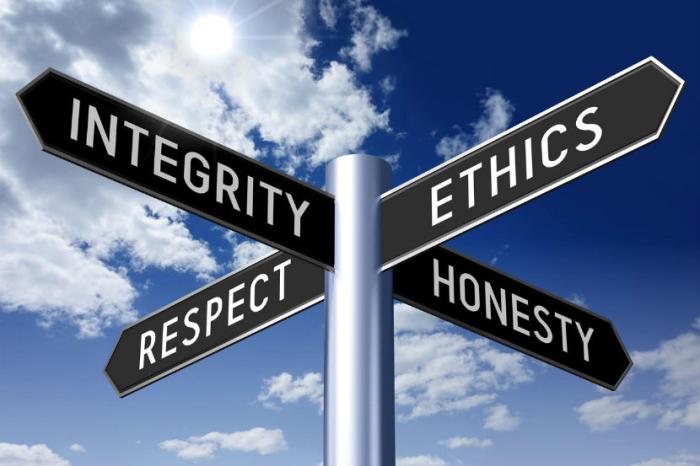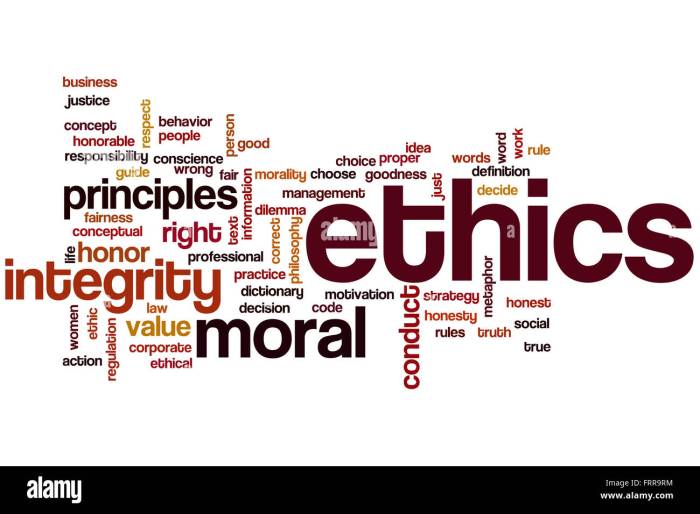Law deals with online actions words and ethics – In the realm of online interactions, law deals with online actions, words, and ethics, presenting a complex interplay of legal frameworks and ethical considerations. This essay delves into the legal principles governing online behavior, explores the ethical responsibilities of individuals and organizations, and analyzes the power and impact of words in digital communication.
As we navigate the ever-evolving digital landscape, understanding the legal and ethical implications of our online actions becomes paramount. This essay provides a comprehensive examination of the interplay between law, words, and ethics in the online realm, offering insights and guidance for responsible and ethical online behavior.
Legal Framework for Online Actions
The legal framework governing online behavior is complex and evolving. It encompasses a wide range of laws and regulations that address specific types of online conduct, such as hate speech, cyberbullying, and online fraud.
Specific Laws and Regulations
- Communications Decency Act (CDA): Protects online platforms from liability for user-generated content but allows for prosecution of individuals who engage in illegal activities online.
- Computer Fraud and Abuse Act (CFAA): Prohibits unauthorized access to computer systems and data.
- Digital Millennium Copyright Act (DMCA): Provides copyright protections for online content.
Legal Cases Related to Online Conduct
Numerous legal cases have been brought against individuals and organizations for online actions, including:
- United States v. Lorin Andrews: Conviction for threats made online.
- Doe v. MySpace: Lawsuit alleging negligence in allowing cyberbullying on its platform.
- Google LLC v. Oracle America, Inc.: Copyright infringement lawsuit over the use of Java APIs in Android.
Ethical Considerations in Online Interactions

In addition to legal considerations, ethical principles should also guide online behavior. These principles include:
Ethical Principles
- Respect for others: Treat others with the same respect and dignity you would expect for yourself.
- Honesty and integrity: Be truthful and transparent in your online interactions.
- Responsibility: Be aware of the potential consequences of your online actions and take responsibility for your behavior.
Potential Harms and Benefits of Online Actions
Online actions can have both positive and negative consequences:
Potential Harms
- Cyberbullying: Online harassment and intimidation can have devastating effects on victims.
- Hate speech: Online platforms can amplify hateful rhetoric and spread discrimination.
- Privacy violations: Online data collection and surveillance can compromise personal privacy.
Potential Benefits
- Social connection: Online platforms can facilitate communication and community building.
- Information sharing: Online platforms can provide access to a wealth of information and resources.
- Political activism: Online platforms can empower individuals to participate in political discourse and mobilize for change.
Words and their Impact Online
Words have immense power and influence in online communication. The choice of words can convey respect, empathy, or hatred. It can incite violence, discrimination, or understanding.
Power of Online Language
Online language can be particularly powerful due to:
- Anonymity: Online platforms allow users to express themselves without fear of direct consequences.
- Amplification: Online platforms can amplify messages and reach a wide audience.
- Emotional impact: Written words can be more easily misinterpreted or taken out of context than spoken words.
Strategies for Respectful Online Dialogue
To promote respectful and responsible online dialogue, consider the following strategies:
- Choose words carefully: Be mindful of the potential impact of your words and avoid using language that could be interpreted as hateful or discriminatory.
- Listen actively: Pay attention to the perspectives and experiences of others, even if you disagree.
- Engage respectfully: Respond to others with respect, even if you disagree. Avoid personal attacks or inflammatory language.
Legal and Ethical Implications of Specific Online Actions

Certain online actions raise specific legal and ethical concerns:
Online Harassment and Cyberbullying
Online harassment and cyberbullying involve the use of electronic devices to repeatedly and intentionally inflict emotional distress on a victim. These actions are illegal in many jurisdictions and can have serious consequences.
Hate Speech, Law deals with online actions words and ethics
Hate speech is any form of expression that incites hatred or violence against a particular group based on race, religion, sexual orientation, or other characteristics. Hate speech is often illegal and can lead to discrimination and violence.
Online Surveillance and Data Privacy
Online surveillance and data privacy involve the collection and use of personal data without the individual’s consent. These actions raise ethical concerns about privacy, autonomy, and the potential for discrimination.
Balancing Freedom of Expression and Online Safety: Law Deals With Online Actions Words And Ethics

Freedom of expression is a fundamental right that extends to online platforms. However, this right must be balanced against the need to protect individuals from harm.
Importance of Freedom of Expression
Freedom of expression is essential for a democratic society:
- Political discourse: Online platforms allow individuals to engage in political debate and hold those in power accountable.
- Social change: Online platforms can facilitate social movements and mobilize individuals to advocate for change.
- Personal expression: Online platforms provide individuals with a space to express themselves and connect with others.
Challenges in Balancing
Balancing freedom of expression with online safety is challenging:
- Defining harmful content: Determining what constitutes harmful content is subjective and can vary across cultures and contexts.
- Protecting vulnerable individuals: Online platforms must take steps to protect vulnerable individuals from harassment, cyberbullying, and other forms of online harm.
- Accountability: Online platforms must be held accountable for the content they host and the actions of their users.
Essential FAQs
What are the key legal principles governing online behavior?
The legal principles governing online behavior include freedom of expression, defamation, privacy, and intellectual property rights.
What are the ethical considerations that should guide online interactions?
The ethical considerations that should guide online interactions include respect, empathy, honesty, and accountability.
How can we promote respectful and responsible online dialogue?
We can promote respectful and responsible online dialogue by using respectful language, avoiding personal attacks, and being mindful of the potential impact of our words.